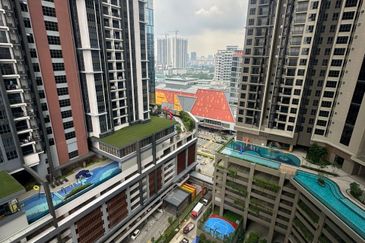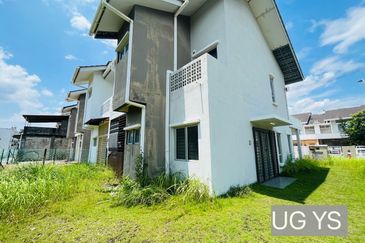
KUALA LUMPUR (June 1): Following Minister of Water, Land and Natural Resources Dr Xavier Jayakumar’s recent announcement regarding the government potentially tapping underground water resources, environmentalists have voiced concerns about the negative impact of such a move.
The Malay Mail reports that Association for the Protection of the Natural Heritage of Malaysia president Puan Sri Shariffa Sabrina Syed Akil said that the plans to embark on digital mapping to identify underground water resources nationwide may result in negative impact in the long term.
The possible consequences of tapping underground water includes landslides and sinkholes.
“The side effects in the long term are really, really bad. Number one, it will create insufficient drinking water because of too much water being drained.
“Next, the moisture of the soil...because once you keep digging water from underground, the soil will not be moist anymore. So what happens when the soil is not moist? It will lose its fertility. So once the soil is not fertile, the plants will die,” she was quoted as saying by the news portal.
In the long run, she said, the area being tapped may turn into a desert, and can collapse from the disruption of the water level.
Instead, Sabrina said, the government should amend the Forestry Act to ban logging altogether, to conserve forests and ensure water supply, instead of digging for underground water.
“The problem with our government now is the state governments are mostly greedy, because logging means money.
“Now I’m shocked that our minister, instead of going through and changing the Forestry Act to ban logging, goes for this kind of water digging instead,” she said.
The Malaysian Nature Society’s president Prof Ahmad Ismail voiced similar concerns, and raised other issues stemming from tapping underground water resources, including increased logging.
“When we depend on water catchment areas where the forests are, they will certainly keep the forests.
“But when we depend on underground water, they might confuse the public by saying since it’s underground water that is being extracted, it will not affect the surface water, and there will be more chances to cut more forest.
“We don’t want them using that as a reason to cut more forests.
“We need to monitor underground water too. Is it clean or polluted?” he was quoted as saying, and said that soil that had been contaminated with pesticides and the like would leach toxic elements into underground water.
The news portal quoted Malaysia Green and Blue Environmental Protection Society’s secretary Jaron Keng who said: “Yes, there are some negative effects of groundwater extraction such as lowering the ground water table, deterioration of groundwater quality, reduction of water in streams and lakes and land subsidence.
“Groundwater pumping can alter how water moves between an aquifer and a stream, lake, or wetland by either intercepting groundwater flow that discharges into the surface-water body under natural conditions.”
He also noted that conservation of current river water is a more viable option than tapping underground water resources.
Environmental Management and Research Association president KN Gobinathan said that the after-effects of water mining activities may be negative.
“I was surprised by his statement. Depending on the locality, generally it is not good practice to mine underground water. Upsetting to the natural ecosystem. A good mapping is required, which is what we do not have.
“Mining technology I am certain will be good, but you can’t be certain about the effects of altering natural ecosystems with flooding, loss of minerals, river water levels and others.
“Underground water mining really requires in-depth study of rainfall patterns, to determine the environmental risk,” he said.
TOP PICKS BY EDGEPROP

Vista Alam Serviced Apartment
Shah Alam, Selangor

Pangsapuri Palma
Bandar Botanic/Bandar Bukit Tinggi, Selangor

Pangsapuri Akasia, Bandar Botanic
Bandar Botanic/Bandar Bukit Tinggi, Selangor

Ambang Botanic
Bandar Botanic/Bandar Bukit Tinggi, Selangor





















